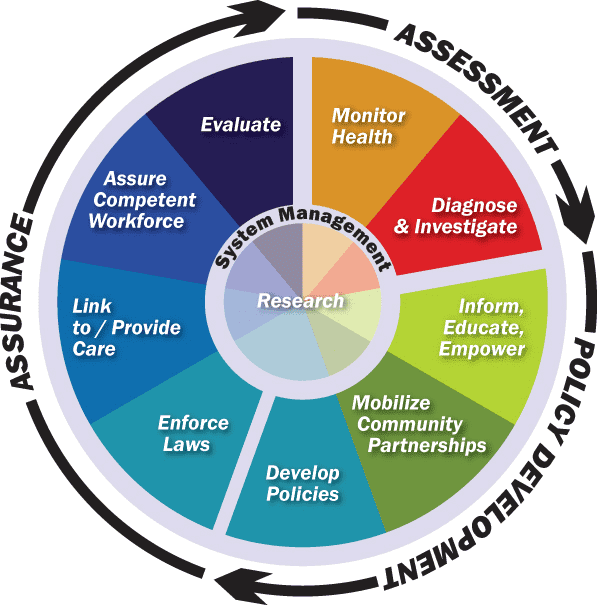Ironically, the prominence that the COVID-19 pandemic has brought to public health may pose a threat if it leads people and politicians to believe public health is only about infectious disease.
In fact, public health is necessarily concerned with the entire range of diseases and injuries that afflict humanity and is ultimately rooted in the social, environmental and economic conditions into which we are born, grow, live, work and age. The risk arises if public health comes to be seen as “out of its lane” when addressing the deeper environmental, social and economic forces that create poor health and its scope of practice is narrowed to a focus on infectious disease.
Obviously, infectious diseases matter. In addition to the clear and dramatic impact of COVID-19, the World Health Organization (WHO) reports 1.5 million people, mainly children, die every year from vaccine-preventable disease such as diphtheria, tetanus, pertussis (whooping cough), influenza and measles. Other major infectious diseases are tuberculosis (1.5 million deaths), HIV/AIDS (770,000 deaths) and malaria (405,000 deaths). Diarrhoeal disease killed about 1.4 million people in 2016, almost half of whom were children under 5.
Between them these infectious diseases kill more than 5 million people, year in and year out. At the current rate, in the next decade they will kill more than the worst case projected for COVID-19. Most of these deaths have occurred in low-income countries but are largely preventable through a combination of immunization, sanitation, hygiene and basic treatment and at a fraction of the cost we are incurring to fight COVID-19.
But infectious diseases are not the only public health challenge we face. The WHO reports the following annual death toll from non-infectious causes: tobacco (8 million), outdoor air pollution (4.2 million), indoor air pollution (3.8 million), alcohol (3 million) and road traffic crashes (1.35 million). Interpersonal violence and armed conflict killed about 675,000 people in 2012. Between them, they cause more than 20 million deaths annually, as many as the worst-case scenario for COVID-19 every two years.
These sources of illness and death are in turn affected by the social and ecological determinants of health. Poverty, inequality, hunger, homelessness and unaffordable, poor quality housing all adversely affect health. This is why the 2008 WHO Commission on the Social Determinants of Health found “social injustice is killing people on a grand scale.”
In addition, climate change and other massive and rapid global ecological changes – and the economic system that drives these changes – are a major threat to human health.
Thus, our health and wellbeing depends on public health engaging directly at multiple levels on all of these issues. It would be a tragic mistake – and one with serious consequences for the health of the population – if COVID-19 resulted in governments narrowing the scope of their investments in public health to focus primarily on infectious disease.
Yet there is evidence this was already happening before COVID-19, with public health nurses eased away from community-based prevention to more clinically oriented work.
But as the Canadian Medical Association Journal recently noted, “health care workers are not the front line; they are our last line of defence” in the fight against COVID-19.
The CMAJ is right. The front line is made up of public health staff who work in every community in Canada every day, pandemic or not, to prevent illness and promote wellbeing, thus reducing the burden of disease the healthcare system faces.
While we can again expect to hear the call for public health to be strengthened, as was the case after SARS, we must ensure that any such strengthening is not focused solely on the capacity to fight infectious diseases but instead strengthens the entire field of public health. Anything less would result in harm to the health of Canadians.



The comments section is closed.
Well said. Thanks
As the world is focusing on COVID-19 and its news, there is a high chance that other public health issues can be neglected. All professional organizations and experts should coordinate with the government to prepare our health system to tackle all important public health problems.